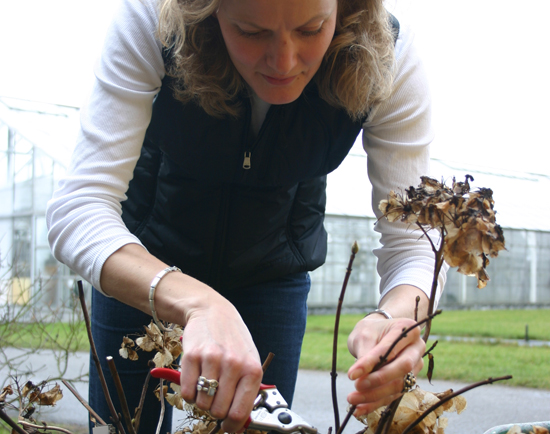Travel stipend from the Carlsberg Foundation awarded to Aarhus University scientist
Scientist from Aarhus University, Majken Pagter, who studies freezing tolerance of plants, has been awarded a travel stipend by the Carlsberg Foundation for an extended stay at a recognised German research institute.

Global climate change may increase the risk of frost injury in perennial plants due to increasingly irregular temperature patterns.
Periods of cold weather interrupted by shorter, warmer periods disturb the normal rhythm of plants. It is therefore important to understand the mechanisms of loss of freezing tolerance in plants, which increase the risk of subsequent freezing injury. These mechanisms are what postdoc Majken Pagter from Aarhus University is trying to understand, and her premise for doing so has now been improved with the award of a travel stipend from the Carlsberg Foundation to the tune of DKK 350,000.
The award enables her to spend a year at the prestigious Max Planck Institute of Molecular Plant Physiology in Potsdam, southwest of Berlin.
- I am very pleased to have received the travel stipend as it enables me to try out some methods that are not available here at Research Centre Aarslev. Since plant freezing tolerance is a small research area in Denmark, it will be really exciting to travel to Germany and become part of a recognised group within this area, says a happy Majken Pagter.
In Germany Majken Pagter will use some of the so-called omics-technologies to study the importance of the plant’s ability to remember low temperatures for their capacity to survive later frost snaps.
- By identifying changes in the regulation or quantity of genes or metabolites when plants lose their freezing tolerance, we hope to obtain new knowledge about the mechanisms regulating loss of freezing tolerance in plants. This determines how long the plants are able to remember sub-zero temperatures and remain freezing tolerant, even when temperatures rise, she explains.
Optimal plants under changed climate
Majken Pagter hopes that her visit to the German research institute will give her important knowledge about the mechanisms that control plant tolerance to temperature swings in the winter. This will also help in the impact assessment of climate change on overwintering of plants and identification and development of the most suitable plants for the changing climate of the future.
Further information: Postdoc Majken Pagter, Department of Food Science, e-mail: majken.pagter@agrsci.dk
Facts – plants and freezing tolerance
The capacity of plants to tolerate frost is a seasonal phenomenon. In the autumn plants cold acclimate, whereby they become increasingly tolerant to sub-zero temperatures. Freezing tolerance reaches a maximum in mid-winter,while with increasing temperatures in the spring plants loose freezing tolerance by deacclimation.
Resumé
2004 Cand.scient. in biology, Aarhus University
2008 PhD in crop science, University of Copenhagen
2009 Awarded a postdoc grant from The Danish Council for Independent Research | Technology and Production Sciences and The Danish Council For Independent Research Young EliteForsk award.
2009- Postdoc at Aarhus University
